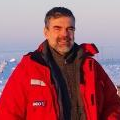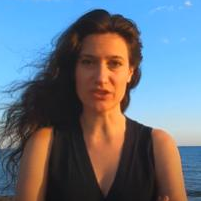Mitigating Marine Hazards and Sustainable Developing Strategic
A special issue of Sustainability (ISSN 2071-1050). This special issue belongs to the section "Hazards and Sustainability".
Deadline for manuscript submissions: closed (28 February 2022) | Viewed by 25819
Special Issue Editors
Interests: biogeochemistry; environmental science; marine geochemistry; environment and health
Interests: marine geomorphology; coastal and marine volcanism; cartography; hazard; coastal archaeology; coastal and marine pollution
Special Issues, Collections and Topics in MDPI journals
Interests: atmospheric science; satellite monitoring; climate observation; remote sensing
Special Issues, Collections and Topics in MDPI journals
Interests: marine ecology; seagrass ecology; marine protected areas
Interests: circular bioeconomy; bioremediation; bio-based value chains; policy strategies to support the social, environmental, and economic benefits of a bio-based society
Special Issue Information
Dear Colleagues,
The aim of this Special Issue is to present the state-of-the-art and recent/future scientific/technological trajectories in the field of Marine Hazards and Sustainability. In particular, some specific topics, beyond the classical aspects related to risks by volcanoes, earthquakes, landfills, floods, tsunamis, etc., represent the core of the article collection which directly focuses on anthropogenic impacts with potential effects of deep and coastal marine environment deterioration. Primarily invited are contributions which explore synergies among scientific research, industrial evolution, and decision-making and management systems in the relevant sectors of marine hazard. In this sector, the economies of many countries are deeply involved in terms of strategic challenges for sustainable development. In particular, four macro-areas of primary interest in terms of hazard mitigation and sustainable restoration/recovery, in both coastal and deep marine environments, have been selected. All these areas are particularly relevant for ecosystem and human health and represent the main focus of this collection.
Specifically, a) development of new scientific and technological approaches for mitigation of mining activities in the marine environment, particularly the deep system, b) development of new integrated conceptual and technological systems for remediation and recovery of contaminated sediments, c) development of integrated observation platforms for monitoring the marine–coastal system and mitigating anthropogenic and natural impacts in the marine environment, and d) development of integrated actions of mitigation/environmental recovery of degraded marine-coastal areas through the restoration of Posidonia oceanica meadows and/or alternative marine organisms. A specific focus is dedicated to the socioeconomic analysis with respect to the application of the proposed methods. This finding will support the development of productive and sustainable marine environmental policy systems.
Dr. Mario Sprovieri
Dr. Salvatore Passaro
Dr. Alcide Giorgio di Sarra
Dr. Fabio Badalamenti
Dr. Fedra Francocci
Guest Editors
Manuscript Submission Information
Manuscripts should be submitted online at www.mdpi.com by registering and logging in to this website. Once you are registered, click here to go to the submission form. Manuscripts can be submitted until the deadline. All submissions that pass pre-check are peer-reviewed. Accepted papers will be published continuously in the journal (as soon as accepted) and will be listed together on the special issue website. Research articles, review articles as well as short communications are invited. For planned papers, a title and short abstract (about 100 words) can be sent to the Editorial Office for announcement on this website.
Submitted manuscripts should not have been published previously, nor be under consideration for publication elsewhere (except conference proceedings papers). All manuscripts are thoroughly refereed through a single-blind peer-review process. A guide for authors and other relevant information for submission of manuscripts is available on the Instructions for Authors page. Sustainability is an international peer-reviewed open access semimonthly journal published by MDPI.
Please visit the Instructions for Authors page before submitting a manuscript. The Article Processing Charge (APC) for publication in this open access journal is 2400 CHF (Swiss Francs). Submitted papers should be well formatted and use good English. Authors may use MDPI's English editing service prior to publication or during author revisions.
Keywords
- marine hazards
- mitigation
- remediation and restoration
- deep sea mining
- satellite and observing systems
- Posidonia oceanica
- circular bioeconomy
Benefits of Publishing in a Special Issue
- Ease of navigation: Grouping papers by topic helps scholars navigate broad scope journals more efficiently.
- Greater discoverability: Special Issues support the reach and impact of scientific research. Articles in Special Issues are more discoverable and cited more frequently.
- Expansion of research network: Special Issues facilitate connections among authors, fostering scientific collaborations.
- External promotion: Articles in Special Issues are often promoted through the journal's social media, increasing their visibility.
- e-Book format: Special Issues with more than 10 articles can be published as dedicated e-books, ensuring wide and rapid dissemination.
Further information on MDPI's Special Issue polices can be found here.









